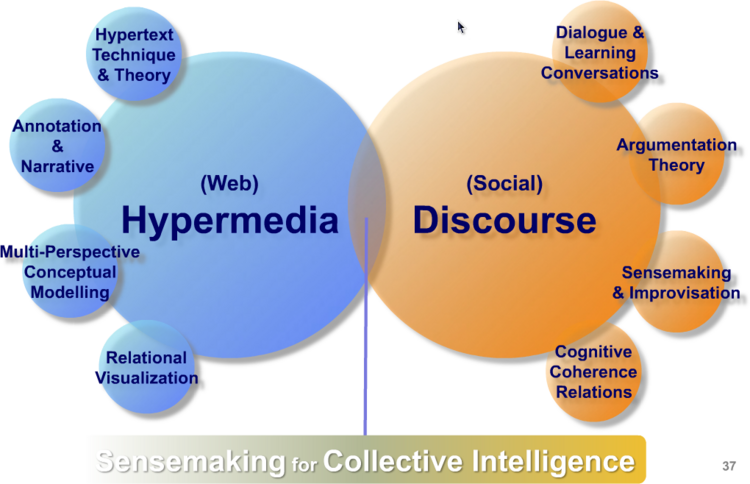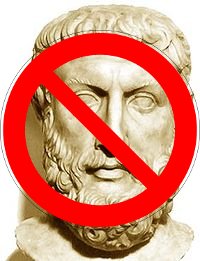Aug 2010 Semantic Mediawiki intro: Difference between revisions
Jump to navigation
Jump to search
| Line 98: | Line 98: | ||
<div style="float: right; width: 48%"> | <div style="float: right; width: 48%"> | ||
http://semantic-mediawiki.org/w/images/smw.gif | |||
[[File:200px-Parmenides.jpg]] | [[File:200px-Parmenides.jpg]] | ||
</div> | </div> | ||
| Line 107: | Line 107: | ||
* Creating views based on multiple web sites. | * Creating views based on multiple web sites. | ||
* Across wikipedia: Places with populations between 100 and 10,000 with a | * Across wikipedia: Places with populations between 100 and 10,000 with a | ||
* | * Technical ontologies | ||
** Classes (categories) | ** Classes (categories) - '''person''', place, date | ||
** Properties | ** Properties - birth date, birth place, current location, height | ||
** Inference | ** Inference | ||
*** If a person (class) has a child, they're a parent | *** If a person (class) has a child, they're a parent | ||
* Usefully and easily combine different data sources - data network effects | |||
** Recipe from one site, ingredients from another | |||
** Web searches that only include precise content | |||
** Aggregate reviews from different sites | |||
<br class="cleared" /> | <br class="cleared" /> | ||
Revision as of 11:15, 26 August 2010
Wikis are commonly used for group content development. Semantic Mediawiki adds easier to use forms and the ability to annotate distinct content such as places, people and dates for reuse in interactive views and queries. In this session, we'll look at how semantic wikis can be used to develop content for indigenous and linguistic communities, with a practical, hands on focus including how to create pages, categories and simple ontologies. We will focus on processes to make sites inclusive, and examine fair terms of re-use.
Web
- International
- Focused on presentation
- Anyone can create a site
- Network effect
- Hyperlinks
Wikis
- Portland Pattern Repository - 1995
- Personal wiki
- Group
- Organization
- Topical
Wikipedia
- 2001
- Anything accepted as notable, neutral point of view
Mediawiki
- Hundreds of thousands of sites
- Hundreds of extensions
- Page, not content manager
Wiki use and editing
On any wiki with critical mass:
- Readers
- Drive by editor
- Topic editor
- Nerd core
How to use a wiki
- Categories
- Recent changes
- wp vs small site
- Page history
- Page discussion
- http://en.wikipedia.org/wiki/Talk:Trust_%28monopoly%29 - tags and backstory
- User pages
Editing wikis
- Wikis typical use their own markup (syntax)
- Rich/wysiwyg editors create messes
- Typical word processors adding junk, can't re-use for headings, can't compare versions
Progressive learning
- = heading 1 =
- * Bullet point
- [[Wiki link]]
- View source to learn from others
- Edit sections to compartmentalize changes
Brackets must be matched!!!!
Elements of markup
- Headings, bullets, tables, dividers
- HTML code - http://www.asiancanadianwiki.org/wiki/Main_Page
- Links - onsite and off
- Templates
Semantic
Adding meaning through relationships.
- Triples - expressing relationships
- Subject, predicate, object
- David lives in Montreal.
- David: Subject
- Lives in: predicate
- Montreal: object
- Montreal is a city.
- A city is a place.
- Montréal is the English spelling of Montréal.
Web of data
- The text is the database.
- Making statements across web sites.
- Creating views based on multiple web sites.
- Across wikipedia: Places with populations between 100 and 10,000 with a
- Technical ontologies
- Classes (categories) - person, place, date
- Properties - birth date, birth place, current location, height
- Inference
- If a person (class) has a child, they're a parent
- Usefully and easily combine different data sources - data network effects
- Recipe from one site, ingredients from another
- Web searches that only include precise content
- Aggregate reviews from different sites

On Social Learning, Sensemaking Capacity, and Collective Intelligence
Licensing
trends
hands on
sites
thoughts
